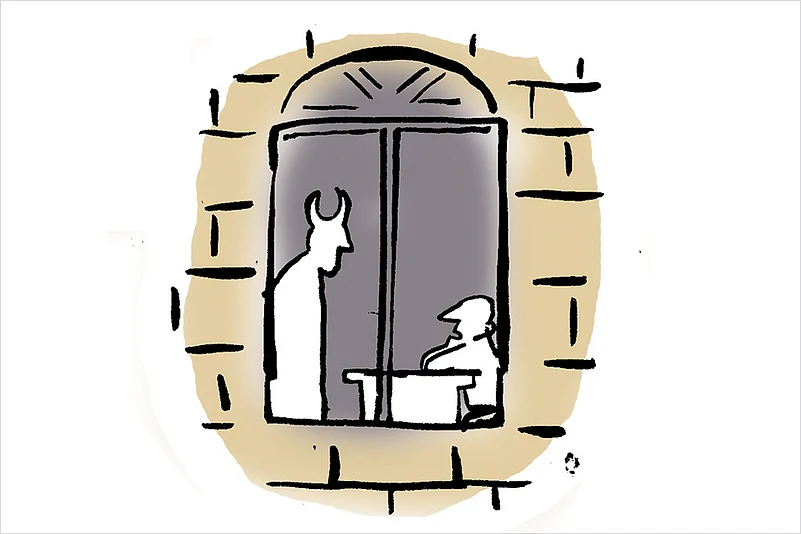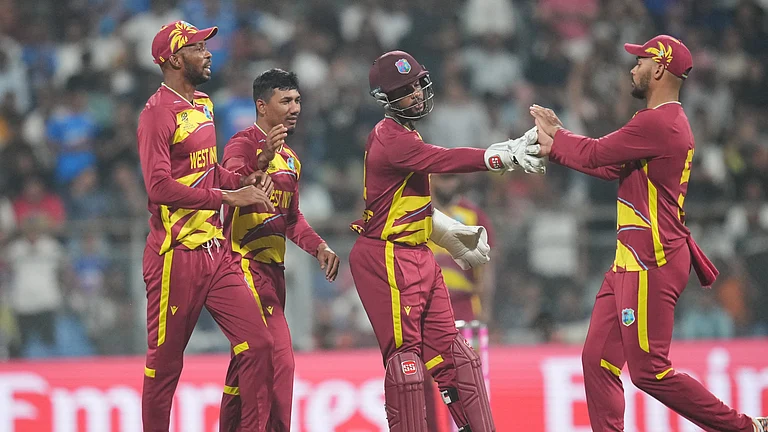Collectorate Ghost
One hundred and thirty-three years ago, in the princely state of Hyderabad, a British engineer’s wife laid the foundation stone of the bungalow that serves as the Warangal (Urban) district collector’s residence in present-day Telangana. The bungalow made news recently when district collector Amrapali Kata told a private web channel that she has a ghost for company. Former collectors who had lived in the bungalow had warned her of the ghostly presence on the first floor and asked her to avoid sleeping there. After moving in, Kata got the whole place cleaned and has rarely used that part of the building. The ceiling is up to 20 feet high and renovation work is on as rainwater seeps in from some leaky corners.
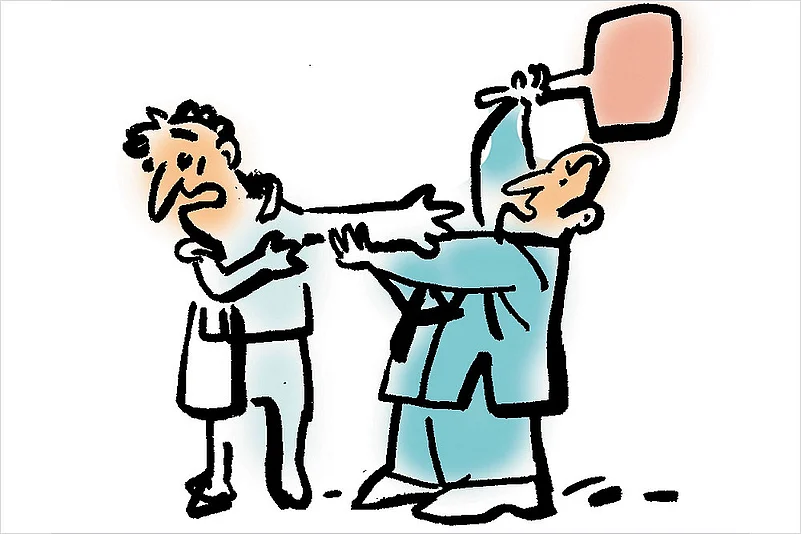
Penal Secrets
In Nepal, which ranks 106 among 180 countries on the press freedom index of Reporters Without Borders, a new criminal code has made publishing of information deemed private or confidential, or content that damages a person’s reputation directly or through satire, an offence punishable by up to three years in jail and a fine. Recording audio or taking photos without permission will also beget the same sentence. There are fears that the vaguely defined offence, which leaves a wide scope for interpretation, could enable use of the law for punishing dissent and discouraging investigative reporting. “The new laws can force self-censorship and mark a slide towards authoritarianism,” said political cartoonist Rajesh K.C.

Unique Bribe Code
Cops operating at checkpoints in Himachal Pradesh’s Una district had allegedly started taking so much bribe that the SP of the district, Diwakar Sharma, came up with an unconventional measure to check the menace. He’s ordered that each cop at the Una chekposts, which see a heavy influx of pilgrims to HP, cannot carry more than Rs 200 with them, which is the stipulated amount for one challan. The plan is to keep frisking the cops intermittently to check for money over Rs 200 and then take action. Thankfully, there are debit cards and the push for a ‘digital India’ has brought in the use of mobile wallets. So, if a cop’s vehicle suddenly runs out of fuel on the winding Una roads, he can at least pay by card or e-wallet. But, wait a minute! What if a cop asks for a “Paytm karo” payment for the bribe amount?
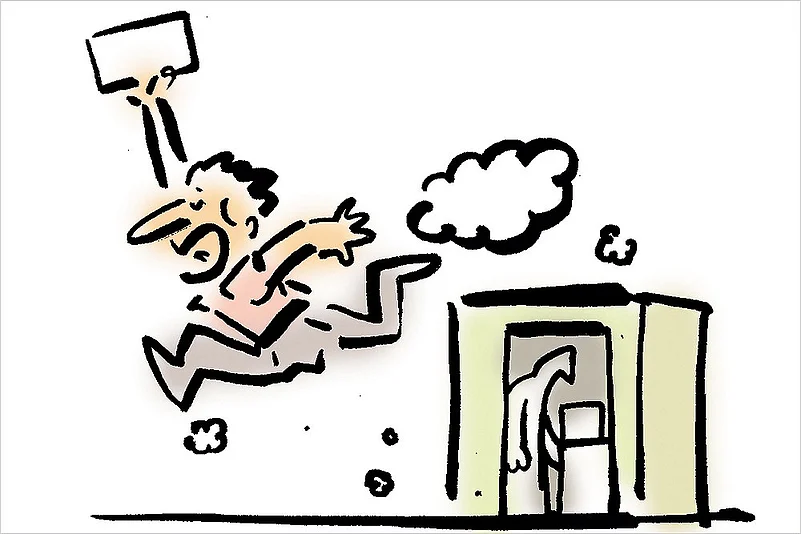
The Poll Runners of Ranikor
In Meghalaya’s Ranikor, an assembly constituency where byelections are scheduled August 23, communicating between the five polling stations is a difficult task. There are no roads in the polling areas and mobile connectivity is very low. It’s like time has frozen in Ranikor, which is stuck way behind other, ‘developed’ areas of the country. So, a unique plan has been devised by the election commission to facilitate communication between the polling stations on election day. Rather, they have reverted to the techniques of yore—when the postal department would employ runners to deliver mails. “The district authorities identified 15 youngsters to transmit the messages,” chief electoral officer Roy Kharkongor was quoted as saying. These runners will be paid honorariums on a par with the amounts paid to the polling officers. “The area has historically produced the best runners in the state,” added Kharkongor.
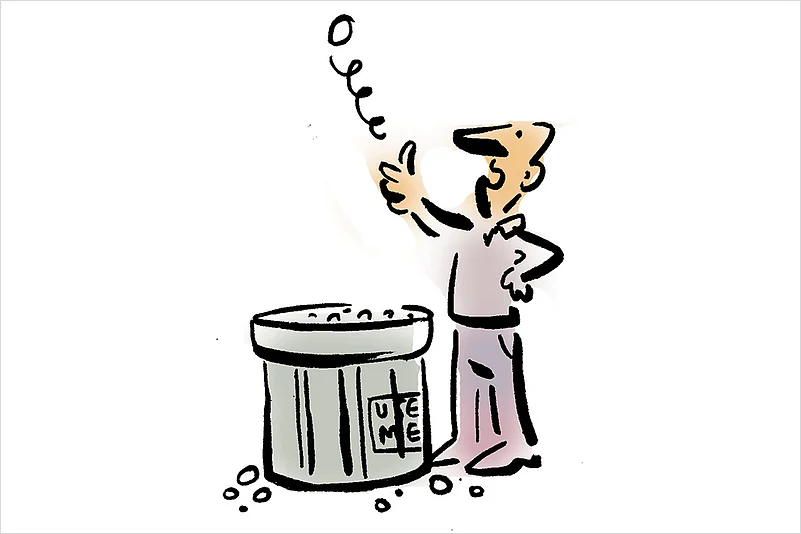
Don’t give us Our Coins
An order like demonetisation is bound to create confusion. Just after #DeMo, Rs 10 coins fell under suspicion: had they been discarded, was there a big batch of fake coins doing the rounds? The situation in Berhampur in Odisha is unchanging. Shopkeepers there won’t accept Rs 10 coins for a year now, and recently Re 1 coins have also come under the public lens. Authorities notified people that the coins were fine, but in vain. Some have claimed that banks are not accepting coins. In their defence, bank officials said people bring sacks full of coins to them, which they don’t want to spend entire days counting.
A Difficult Welcome
A decade has passed since the civil war in Sri Lanka ended. The war displaced a huge number of people. Around a lakh refugees came to India. Now, the Lankan PM Ranil Wickremasinghe has said that he’d help the refugees in India who want to return. Nearly 4,000 people have expressed their desire to move back to Sri Lanka. The PM’s words might be encouraging, but major rehabilitation struggles await those wanting to come back. In the past few years, around 10,000 refugees have returned to the country, but reports suggest that they have had to face a very tough time.
Odanga’s Last Post
The villages serviced by the Odanga branch post office in Odisha’s Bhadrak district have not had their mail delivered properly for a decade. Parcels would never arrive, or important missives and documents—official notices, exam admit cards, letters of acceptance vanished without a trace. It was frustrating. They know now why. A group of children playing in the premises of the post office espied a room full of sacks with letters spilling out of them. Some 1,500 undelivered items spanning ten years (2008-2017) tumbled out; the mystery was solved. The culprit: Jagannath Puhan, the assistant post master at the branch (but not a full-time employee), who has been suspended.

Beijing’s Cold Fingers
For some weeks now, experts have been discussing the health of Pakistan’s economy. But while the debate is still on whether the country should seek another bailout from the IMF, a new element has been added to explain its current woes: the burgeoning trade gap with China.
In the past, Pakistani sceptics had spoken about the negative impact of the multi-billion China-Pakistan Economic Corridor. Yet, until now, no one had held China directly responsible for the erosion of Pakistan’s competitiveness in the global market. The grave economic impact of Pakistan’s “all- weather” friend has now come into sharp focus.
“One of the weightiest economic challenges that the new government will have to tackle is the erosion of Pakistan’s competitiveness in the global market,” opines Dawn in an editorial. “Over the decades, Pakistan’s economy has lost more ground to competitors, and the base of the economy’s exports has narrowed. One country stands out in particular now in Pakistan’s balance of trade. That country is China,” it added.
India and several other countries have often complained about the rising gap in bilateral trade with China. But so far one had not heard Pakistan complaining. Perhaps, the looming economic crisis is now forcing experts within to do a more serious introspection.
According to Dawn, Pakistan’s trade deficit with China has been growing continuously year after year, and is today the primary reason for the country’s external-sector imbalances.
Last fiscal year, it touched $9.7 billion whereas the overall trade deficit was $37.7 billion. Clearly, a way needs to be found to bring this growing deficit under control before it swamps not just Pakistan’s external sector but also its manufacturing base.
Dawn warns it would be a mistake to adopt a hands-off approach to this question like the previous government did, or to use instruments like regulatory duties to choke off what is essentially a natural influx of cheap commodities.
A smarter strategy needs to be devised, and with the kind of talent available to the PTI government, they are ideally placed to develop it, says Dawn.
So, Imran Khan’s austerity measures, like cutting down unnecessary expenditure at government functions and to stay away from foreign travels, may be the right beginning. But he will need much more to put the economy back on track and weed out existing problems to pursue the dream of a “naya Pakistan”.
Illustrations by Sajith Kumar






